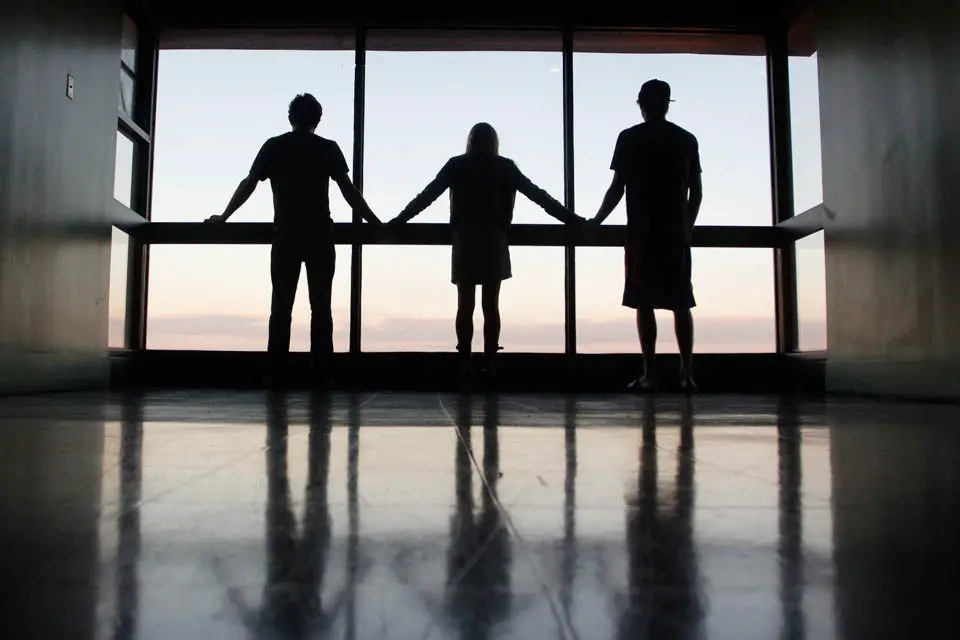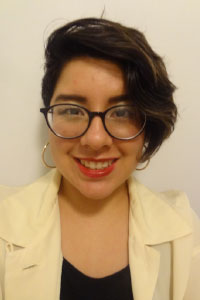Love Is Love
Even at a ‘liberal’ university, monogamy is still the standard.
By Alli Guaman, Marymount Manhattan College
Attending a liberal arts college was a decision I never doubted for a second.
In high school, I had kept silent about who I really was–an activist, a liberal and a pansexual woman, but the most daunting to admit was that I was (and still am) polyamorous. Women “like me” were called sluts, whores and bitches, amongst a galore of other derogatory terms. I would have been grouped in the same category as cheaters, liars and immoral sex-crazed individuals had I said something about polyamory in high school.
That’s why going to a liberal arts college felt like the only option for me, and despite it being a small school, I felt protected by New York City’s enormity.
I was naïve to believe that judgement would disappear because the college had the “liberal” label. All the students claimed to be different, but the majority seemingly had the same mindset. Monogamy was much more prevalent than polyamory at my college, which is not surprising or something to be upset about, but the ignorance was baffling. I don’t expect people to understand polyamory, in much the same ways I don’t understand monogamy; but, I expect my fellow classmates to be respectful of the concept.

That’s not to say that all the students in the school look at me in disgust as soon as they find out about my multiple-partnered relationships; some students ask questions because they genuinely hope to learn a little bit more about this uncommon openness.
One classmate, Karoline, has even gone as far as to suggest a film project about polyamory in their media communications class. Karoline shares my belief that not enough people know, or are even open to knowing, about polyamory.
Not all of my peers are as open-minded as Karoline though; I’ve had students come to me, confused that I was living a lifestyle different than they were. At one point, someone I had told about my amorous endeavors had seemingly accepted polyamory; we became lovers, and then, he tried to convince me that I was really monogamous “deep down and just scared of being hurt.” Of course, that relationship ended. He wasn’t the first to feed me this line, and I’m sure he won’t be the last.
Polyamory, which I proudly refer to as a combination of passion, instinct and love, is about the bond one person can have with another. It’s not about being enticed by a person’s physique, lusting over them and having a one-night stand with multiple people. A strong emotional, intellectual and mental connection must be established first for the physicality to follow, because it’s only natural that it will then follow. Sex is obviously a big part of it, but then again, sex is a healthy component in any romantic relationship.
Some people believe that the world was meant for two; your other half is somewhere out there in the world specifically made to complete you. That’s not the case with polyamory. Each person encompasses a different world and to meld them together is possible, but to completely combine them would just be imaginary. A soul can mingle with more than one person at a time. You can’t control what you feel, because even if you avoid confronting your innate emotions for a while, they will always find a way to creep back into your thoughts.
A while ago, I found myself hiding this critical part of my life, because I didn’t want to be asked any more questions, because I didn’t want to fall in love with someone again only to have them reveal that they never even considered my lifestyle as a legitimate part of me, because I didn’t want to be talked about in between the book shelves at my college’s library.
When the subject would come up in one-on-one conferences with professors (I write about the romantic aspects of my life for many assignments. In one recent assignment, I had to write a letter to someone I care about), I would be hesitant to explain, but I would anyway. I saw no reason why I should be scared, but I was, and it forced me to continuously reevaluate myself.
I went through an identity crisis.
My thoughts were being influenced by those around me, and at twenty, the same internal conversation I’d had with myself many times over the years arose again. “What if they’re right?”
I spent weeks contemplating myself, but the more I thought about why I was polyamorous, the more flaws I found in it. The reason why I found so many flaws in something I’ve always considered natural was because I was searching for them, and when I couldn’t find any flaws, I made them up.
I would put up barriers and try to convince myself that being monogamous was easier. I was convinced that loving a single person, as long as you can rely on them, was better than being affectionate with more than one individual. It didn’t matter though; polyamory is not just something I can encourage myself to leave, it’s a part of me.
Within a year, I had entered college fully aware of whom I was, begun to question myself and eventually rediscovered that I was right all along. I did know who I was, and I still know who I am. When I met students like Karoline, I realized how nonsensical I was for being so easily influenced by opinions that didn’t matter to me.
I don’t wear a sticker that says “polyamorous student” in big red letters on my forehead, but I’m not hesitant to let my classmates and professors know that I am a polyamorous student when it comes up. If people want to talk (and some do), I let them question me to their hearts’ content. If other students are swayed by the rumors and, therefore, go out of their way to avoid me, that’s fine with me; I don’t want to get to know them either.
In high school, being what is deemed “socially normal” is the standard. The peer pressure mixed with societal norms could crush anyone’s individuality at such a tender age. However, in college, you should learn to stay true to yourself. There will be plenty of people who disagree with your beliefs and even take offense to them, no matter how liberal your college is. Despite this, hold your head up high and, if you’re like me, love who you love.















Your a bitch that’s what you really are nobody cares for you
This is the creature we had been warned about.I knew it would come put today.Thank you Alli.Hope you stay strong.